Barnes and Billy, and Living: An Analysis on Slaughterhouse-Five and The Sun Also Rises
If a man does not master his circumstances, then he is bound to be mastered by them.
Amor Towles
It is true, as Amor Towles says, that it is necessary for humans to take hold of the reins of life. It is much more difficult in practice than in theory, but even an attempt is worth more than nothing. Ernest Hemingway and Kurt Vonnegut Jr. must have understood that principle very well. Both are men that have experienced war atrocities, but it is how they have responded to those experiences that make them who they are. Within their novels, The Sun Also Rises and Slaughterhouse-Five, the two novelists share what it means to live a good happy life. Existentialist theory and deterministic theory are prominent in both novels yet overlap between how the philosophical theories are portrayed in the novels. Analyzing both novels can tell us what the authors think is a good way to live life.

Kurt Vonnegut and Slaughterhouse-Five
Kurt Vonnegut (1922-2007) was an American author from Indianapolis, Indiana. After serving in World War II, Vonnegut began reporting. Journalism led him to writing fiction. Many of his earlier stories contained anti-war themes which was influenced by his war experience. He is best known for his postmodernist black humor and satirical novel, Slaughterhouse-Five. The novel, seen by the public as Vonnegut’s magnus opus, dealt much with Dresden and the author’s experience.
Slaughterhouse-Five is a novel about Billy Pilgrim retelling the events of his past in a discombobulated way. Billy Pilgrim is a WWII veteran who lives as an optometrist after the war. Later in his life, he is abducted by a race of aliens called the Tralfamadorians. The time Billy spends in the war consists of him detailing the brutality of war. He is often seen as a blank person with nothing to add because of his war experiences. The novel explores themes like the allusion of destiny and escaping one’s trauma.
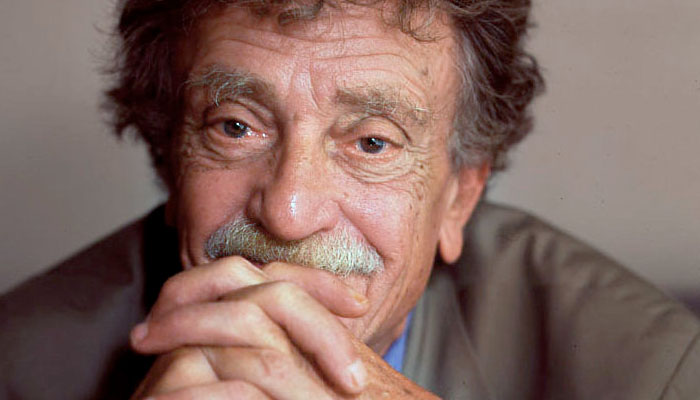
To understand how Hemingway and Vonnegut embed philosophical theory into their novels, it’s good to know what those are. I must note that the philosophical ideas included are not absolute. It is possible for theories to overlap. I must also note that, because the characteristics of the novels mirror two or more philosophical ideas, that does not mean that both novelists are a part or associate with them. In The Sun Also Rises, Hemingway embeds existentialism theory. The theory focuses on human existence and skepticism of life’s purpose. “Existentialism does not deny the validity of the basic categories of physics, biology, psychology, and the other sciences,” Stephen Crowell, said, in his Stanford article, “Existentialism,” “It claims only those human beings cannot be fully understood in terms of them.” A large part of being human is unraveling what life is and what we are to do with it. It is the question that perplexes humans for millenia. Perhaps it will always perplex us since the answer can be anything. It depends more on the individual’s own experiences. It is very plausible that because of Hemingway’s personal experiences and perspective, he could implement an existentialist outlook into his novel. As for Vonnegut, he implements deterministic theory into Slaughterhouse-Five. determinism is the theory that all human actions are predetermined by previous actions. Famous philosopher, Baron d’Holbach. who fostered the view of determinism, explained:
The motive that causes his action is no more in his own power than the obstacle that impedes him, whether this obstacle or motive be within his own machine or exterior of his person: he is not master of the thought presented to his mind, which determines his will; this thought is excited by some cause independent of himself.
(d’Holbach 200, n.d.)
Every action is a causation of a previous action regardless of its connections to it. An interesting way to view life. Life’s choices could be fixed, predetermined by something greater than us. determinism can seem very pessimistic especially when applying it to one’s life. It’s hard to digest that the experiences and moments are fabricated, but does it make much of a difference if it still the same life lived? Many of the atrocities that Vonnegut experiences, told throughout his novel, make it seem as if his influence was miniscule. From the perspective of a soldier, like in his novel, it may seem daunting to realize that one’s actions are already decided.
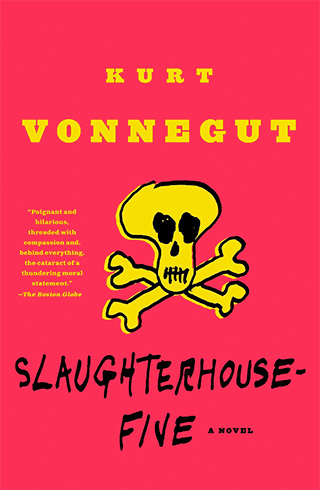
Although Vonnegut implemented deterministic ideals in his novel, Vonnegut was not a determinist. Vonnegut’s humor is important to understand as a method to note determinism. The humor Vonnegut uses is black humor, most notably characterized for being ironic, satirical, dry, and witty. Kevin Brown, in his scholarly article, “A Launching Pad of Belief: Kurt Vonnegut and Postmodern Humor,” explains black humor as, “[Vonnegut] had no intention of improving or even changing the critic’s minds. Rather, his impulse was to subvert a power structure for no other reason than the pleasure of subverting a power structure.” (Brown 47, 2006). Vonnegut did exactly that with such finesse. He rebels against the norms of literature. If the modernist will advert the expectations set in the world of literature, then the postmodernist will push it even further. However, Vonnegut’s humor is more ingenious because on the surface, it appears to serve no purpose but to rebel, but it is there to note the flaws of a deterministic Billy Pilgrim.
Vonnegut’s humor in Slaughterhouse-Five serves to highlight Billy Pilgrim’s determinism. During Billy’s deployment overseas with an infantry regiment, he is ill-equipped. We know what the typical American soldier is equipped with given the descriptions of the gunners (Vonnegut 41, 1975). Billy doesn’t have any of their equipment. He is with clothes that are too thin, an unprotected head, pants that are scratchy, and to make things worse, he is missing a heel from his shoe. The image Vonnegut paints is of a pitiful boy hobbling through snow that is playing soldier alongside soldiers well-equipped and appear like professionals. It is funny although sad upon realization that he is a 21-year old boy. Billy is living passively; he has habituated a deterministic mindset. “Vonnegut creates a sympathetic protagonist,” Brown says, “who adopts a deterministic philosophy to make sense out of life’s apparent randomness…[Billy] creates the Tralfamadorians and their philosophy” (Brown 51, 2006). What soldier would not raise their hand and ask for equipment? At the very least, one would ask for some boots and a helmet. Because Billy is passive, he wouldn’t raise his hand because the decision for Billy to be ill-equipped was predetermined. Being in war has taught Billy to remain silent and let his high-ranking officers make his decision for him. Billy’s passive lifestyle is suggested to have started during his army service. He seems not sad but accepting of what life choices are made for him. He has no choice, so why complain? Billy is absolutely Vonnegut’s way of demonstrating a deterministic mindset and what it can cause.
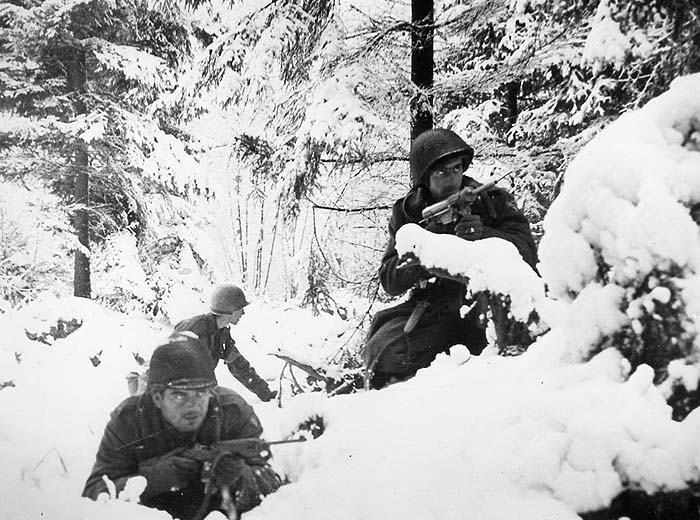
Vonnegut has a conversation with his father in which his dad asks him about never writing a villain in his books. Vonnegut says that he learned about villainy in the war (Vonnegut 10, 2005). Vonnegut implies that there are no villains. Fiction and reality are akin to each other; they mimic each other. So, for there to be no villains in the world means that Vonnegut sees it frivolous to include them in his novels. No one is bad or good, but simply is. To be is the only concrete thing we have. Good or bad are as flexible and interpretable as any other moral. What we constitute as good or bad comes from what we experience and value, how we see ourselves, and what we expect from others. This is an aversion of morals. This omission is deterministic. Every character in the novel is morally grey, with Billy being the greyest. The closest any character comes to being morally just is Edgar Derby, who died because he stole a teacup despite being more righteous than any other character (Vonnegut 274, 2005). Derby’s morality insinuates that even the morally just are inescapable from predetermined acts. The narrator of Slaughterhouse-Five has a deep understanding that if everything is a causation of a previous action, then there really cannot be good or bad characters since they do not act on free will.
The Tralfamadorians are deterministic. They represent a passive life. The Tralfamadorians are extra-terrestrials that know everything that will and has happened at the same time. They experience a fourth dimension that is inaccessible to humans. Billy Pilgrim learns of the fourth dimension when a Tralfamadorian has a conversation over the universe’s end. Pilgrim says, “’How—how does the universe end?’ said Billy. ‘We blow it up, experimenting with new fuels for our flying saucers. A Tralfamadorian test pilot presses a starter button, and the whole Universe disappears.’ So it goes,” (Vonnegut149, 2005). Billy inquiries about why the Tralfamadores do not prevent the mistake. The Tralfamadore says that it is destined to happen.
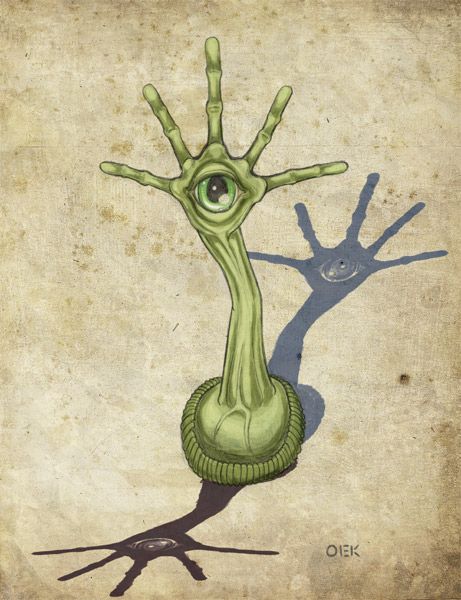
The Tralfamadores will not do anything about it because it is destined to happen. They represent the same mindset as Billy’s, in which every action is a result of another action, and the actions do not have to be related. So why should they stop the pilot? They shouldn’t, because it is the natural order of things and to disrupt it will disrupt all other sequences in life. To Billy, and to the audience, it would be obvious to prevent the universe’s end because it is natural for humans to desire prosperity. We have been habituated throughout millennia to do so. Billy learns to be like the Tralfamadorians, to be passive, because that is his faith and everyone else’s. Rather, the author suggests that Tralfamadore exists only in Billy’s mind. Billy’s deterministic mindset manifested and created an imaginative species of aliens that believe and are aware of Billy’s deterministic ideals. Nevertheless, we, as humans, are oblivious.
The novel and Vonnegut’s literary style make it seem as if Vonnegut is deterministic and passive. Vonnegut and the narrator become one because in Chapter 1, Vonnegut describes his troubles with writing the novel. Some autobiographical elements are also included. Continuing into Chapter 2, Vonnegut’s style of writing and the narrator resemble or seem analogous. Therefore, the virtues of Vonnegut appear to intertwine with that of Billy or the narrator. It is evident that Vonnegut believes in being proactive in some way in Chapter 1. Vonnegut says, “I have told my sons that they are not under any circumstances to take part in massacres, and that the news of massacres of enemies is not to fill them with satisfaction or glee… I have also told them not to work for companies which make massacre machinery, and to express contempt for people who think we need machinery like that.” (Vonnegut10, 2005). The first chapter of the novel is the key to understanding everything that happens to Billy. It starts with Vonnegut’s words of wisdom to his children. The acts that he implores his children to take will not impact anything immediately, but with practice and modeling, humans can create a society where massacre machines are unethical. Determinism, as a basis for principles, can lead to a life of accepting what actions imposed on us. Through Billy, Vonnegut implores readers to be proactive in their lives no matter how small an act is. There is no life like Billy’s life. There will always be pain in life, but the way we respond is more significant.
Ernest Hemingway and The Sun Also Rises
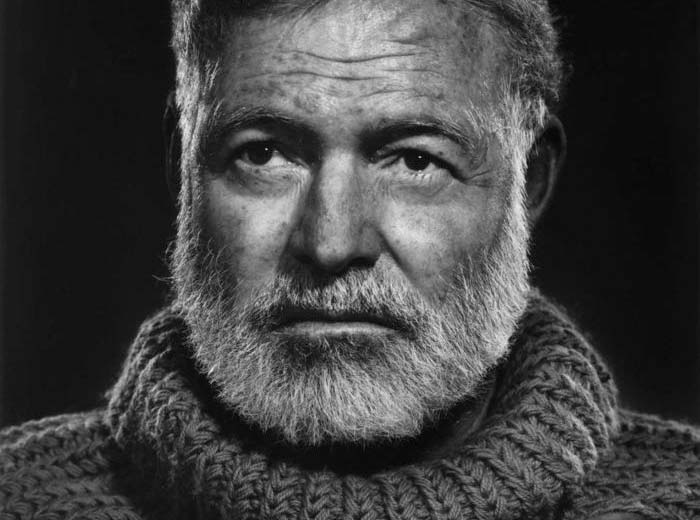
Ernest Hemingway (1899-1961) was an American writer and journalist from Cicero, Illinois. During his young adult years, he participated as an ambulance driver for Red Cross in war-torn Europe. His literary journey began when he reported for various newspapers. It led him to Europe, the epicenter for modernist writing. Of all of Hemingway’s characteristics, his writing style is most notable. His short and concise sentences take inspiration from journalism than that of conventional literature. He was an acclaimed writer as he has many acclaimed novels The Sun Also Rises and For Whom the Bell Tolls, and his novella “The Old Man and the Sea,” which was awarded a Nobel Prize in literature in 1954 and the Pulitzer Prize in 1953.
The Sun Also Rises is a novel about Jacob Barnes and his journey to Pamplona, Spain. At the core, Barnes wants a relationship with Brett Ashley, but she refuses due to his impotency. Drinking, dining, bathing, and partying are a bulk of what happens in the novel, regardless of where the protagonist goes. The novel consists of Barnes and three other men pursuing Brett because they are all attracted to her. They are in Pamplona for the bullfighting festival hosted there. Much of the novel has no explosive conflict, but it is implicit and suggestive. The novel involves themes like finding methods of escaping trauma and finding the purpose or meaning in a dysfunctional world.

Hemingway is like Vonnegut. On the surface, it may seem like Hemingway is existentialist and can seem pessimistic. It is the opposite. Hemingway employs an existentialist point of view as a method to understand the purpose of human existence. The means of Hemingway’s message may be different from Vonnegut’s, but Hemingway still implores a proactive lifestyle. Barnes is on a rite of passage to find his salvation. All the characters in The Sun Also Rises are lost and disillusioned. They’ve come to Europe to escape. Barnes is the same way. Before talking about the end of Barnes’s journey, let us explore the inception. Barnes’s road to salvation and understanding starts when he gets back from war. His war experience caused him to be disillusioned and to become sexually impotent. He is emasculated. In his academic article, “The Way it Wasn’t in Hemingway’s The Sun Also Rises,” Adrian Bond says, “Jake’s body has already become conceptually visible because of a recent, frustrating, encounter with Brett. Standing naked before the armoire mirror, Jake finds the alienated form of ‘himself,’ his body now made literally, visible, presented as an external thing,” (Hemingway 58 ,2007). Looking in the mirror, Barnes realizes his masculinity is gone. What his emasculation does is create a doubtful man that is disillusioned. He is weakened mentally as he no longer has control of his destiny. Through the other characters, Barnes is characterized as a man wandering a desert desperate for water.
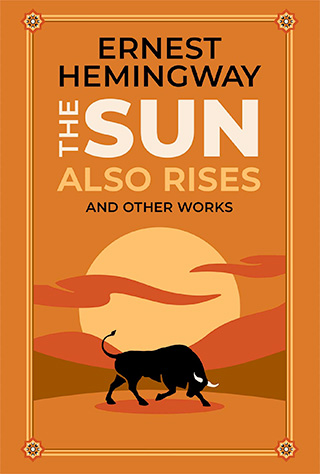
Barnes is passive throughout the novel. He desires Brett but never does anything to convince her. Whenever Cohn makes him angry, he keeps quiet. Whenever something happens, Barnes is complacent. His passiveness is quite like Billy Pilgrim’s. They are both lost in a world they do not understand. However, while Billy creates an alien race to justify his experience, Barnes shifts the blame. In Pamplona, he hears Campbell and Brett laughing and he can’t help but be bitter about it (Hemingway 136, 2007). He blames Brett for being oblivious to what she might be missing being with him. It is dangerous for Barnes to live this way. He habituated in his mind that he is a solution to her problems. He sees every one of Brett’s partners as a problem. It is perpetuated by Brett’s comments. Brett comments to Barnes that they could live wonderfully together, but they never do. In return, Barnes falls deeper into his dangerous thoughts that only hurt him.
Barnes admiration of Pedro Romero is a sign of his admiration of a grounded figure. Romero is the only character that is well composed. This is exemplified by the descriptions of Romero’s attire, his gentleman mannerisms, and his graceful skills in the corral. Jeffery Hart in his academic article, “The Sun Also Rises: A Reevaluation,” says, “Jake Barnes deals with his own mutilated condition by idealizing the bullfighter Pedro Romero,” (Hart 558, 1978). All of this tells us Romero is well composed. Barnes admires him because of it. He takes control of his own destiny and that is what Barnes lacks.
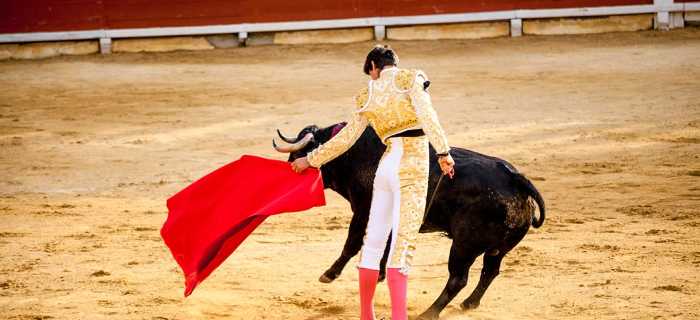
If Barnes is passivity, then Romero is proactivity. Cohn is the weak man who cannot take hold of his own reins. There are many instances of Cohn being a complacent man. His wife brushes him off, Bill Gordon brushes him off, and the more notable Mike Campbell brushes him off when they’re all dining together in Pamplona after a bullfight at a café. Mike tells Cohn that he is a steer and asks if he enjoys being a steer. Mike tells Cohn, “I can’t blame them. Can you blame them? Why do you follow Brett around? Haven’t you any manners? How do you think it makes me feel?” (133). Mike Campbell is insinuating that Cohn just follows Brett blindly. Cohn could be a foreshadowing Barnes’s outcome. If he does not find his salvation, it is possible he will be a steer just like Cohn. Barnes is characterized by Cohn and Romero. Barnes is like Cohn and needs to learn to be like Romero.
It is in the end of the novel that Barnes learns truly to be proactive. Brett comments to Barnes, “’Oh Jake,’ Brett said, ‘we could have had such a damned good time together.’” Jake replies, “’Yes,’ I said, ‘isn’t it pretty to think so?’” (Hemingway 222, 2007). Barnes is proactive. Brett thinks they would be a good couple, but Barnes ironically agrees. Barnes understands that he could have been another one of Brett’s relationships. In a perfect scenario, it would have been pretty, but it’s abysmal. All throughout the novel Barnes asks how they could have worked out their romance. But Brett denies him each time.
Peter Hays, in his academic article, “Imperial Brett in The Sun Also Rises,” says, “Struggle for independence can take years, but at least Jake has realized his position as a possession, his status as a colony under foreign domination, and the revolution has begun—perhaps even a guerilla war. And Brett, presumably, goes off in search of new territory to colonize,” (Hays 242, 2010). Barnes is realizing that he cannot be under Brett’s control. Jake made the first step in becoming proactive. It may take years for Barnes to become the Romero he wants to be, but he made a crucial first step. In the same way Vonnegut advises his children on consciously avoiding causing destruction, Hemingway tells us that to make sense of the world’s disorders, we must take hold of our reins.
Barnes’s journey of salvation is epitomized in the epigraph. Hemingway uses a verse from the Old Testament. The epigraph is Ecclesiastes 1:1-11:
One generation passeth away, and another generation cometh; but the earth abideth forever… The sun also ariseth, and the sun goeth down, and hasteth to the place where he arose… The wind goeth toward the south, and turneth about unto the north; it whirleth about continually, and the wind returneth again according to his circuits…All the rivers run into the sea; yet the sea is not full; unto the place from whence the rivers come, thither they return again.
Upon reading Ecclesiastes 1, it may appear that the narrator is being negative and saying that life is in fact meaningless. However, the opposite is true. This implores the reader to seek God to find one’s purpose. In Ecclesiastes 1, the narrator addresses King Solomon. He is known to be the wisest king. He is so wise that he finds life meaningless. However, the narrator speaks to him and tells him that to find one’s purpose is to find God. Barnes does the same thing as instructed in Ecclesiastes 1. Throughout the novel, Barnes’s faith is tested, but it is nott until toward the end of the novel, when Barnes is in San Sebastian, that he dips into the water and metaphorically is renewed. He is baptized, in a sense. I believe that Hemingway is like the narrator of Ecclesiastes in wanting Barnes to find his purpose in an irrational world. The novel may be cynical, but in a closer reading, the message of The Sun Also Rises is to be proactive about finding one’s purpose in life.

Life is a complex machine. Finding the answer to life’s mystery, our purpose on earth, is difficult. We are all different for our experiences shapes who we are. Our values shape our paths. Our paths determine our purpose. The missing pieces cannot be assumed from another person’s successes. Rather, we must understand that within the dark and irrational peril of the world, there are beacons that can only be reached by the excellences of our mind. Ernest Hemingway and Kurt Vonnegut, during times of disillusionment, skepticism, war and suffering implored us as readers to be proactive and optimistic in their journeys. The journeys of their protagonists should be a lesson to us all. Our actions have consequences but the absence of them as well have consequences. The only way of discovering happiness is to take that initial step.
Works cited
Baron d’Holbach. The Illusion of Free Will, pp. 196-202,
Bond, Adrian. “The Way It Wasn’t in Hemingway’s ‘The Sun Also Rises.” The Journal of Narrative Technique, vol. 28, no. 1, 1998, pp. 56–74. JSTOR, www.jstor.org/stable/30225482.
Brown, Kevin. “‘A Launching Pad Belief’: Kurt Vonnegut and Postmodern Humor.” Studies in American Humor, no. 14, ser. 3, 2006, pp. 47–54. JSTOR, www.jstor.org/stable/42573701.
Crowell, Steven, “Existentialism”, The Stanford Encyclopedia of Philosophy (Summer 2020 Edition), Edward N. Zalta (ed.), URL <https://plato.stanford.edu/archives/sum2020/entries/existentialism>.
Hart, Jeffery. “The Sun Also Rises: A Reevaluation.” The Sewanee Review, vol. 86, no. 4, 1978, pp. 557–562. JSTOR, https;//www.jstor.org/stable/27543481.
Hays, Peter L. “Imperial Brett in The Sun Also Rises.” ANQ: A Quarterly Journal of Short Articles, Notes, and Reviews, vol. 23, no. 4, 5 Nov. 2010, pp. 238– 242. JSTOR, doi: https://doi.org/10.1080/0895769X.2010.517079.
Hemingway, Ernest. The Sun Also Rises. Charles Scribners Sons, 2007.
The Bible. Authorized King James Version, Oxford UP, 1998.
Timmons, Mark, and David Shoemaker. Knowledge, Nature, and Norms: An Introduction to Philosophy. Wadsworth, 2014.
Vonnegut, Kurt. Slaughterhouse-Five. Dial Press, 2005.
What do you think? Leave a comment.











Vonnegut and the idea of free-will and determinism is very interesting.
A lot of people believe in determinism (or that we have no free will). It raises a lot of important and interesting questions (if we have no free will, can we be held responsible for our actions? Is there really good and evil if there are no choices?) and is also omnipresent and interwoven into everything that happens to us. It’s very easy to get caught up in this kind of thinking and have it find it’s way into everything you do (I, myself, spent a very long few months depressed and suffering from insomnia purely because I couldn’t square the idea in my head). It’s a pretty fun and exciting as a thought experiment, though, and is one of the all time most contested and talked about topics of philosophy from ancient times and still being discussed today.
It’s also really interesting from a literary viewpoint. Think of the Author as God, the creator. Do his characters have free will? Can his characters or the events he write have any morality other than that which he ascribes them? If Vonnegut himself has no free will, is he able to give free will to his characters by creating a world which isn’t deterministic, or is there world subject to the laws of the author?
I figure it’s just one of those things that fascinated the author, so it came out a lot in his work
This a nice analysis, thanks!
I reread “The Sun Also Rises” after 45 years, and boy, does a lot of life experience enhance the understanding of this novel.
Not a very pleasant to read, but I think that it conveys PERFECTLY the ‘vibe’ or the feelings of the Lost Generation.
Is Slaughterhouse Five a science fiction?
I would not label Slaughterhouse Five as science fiction. But it could be, depending on the interpretations of each individual reader. Every scene occurring in the book, time travelling and aliens included, could be perceived as events actually happening to Billy Pilgrim. I choose, however, to view all of it as a mind, confused and distressed by the traumatic experiences of war, pain and death, voluntarily escaping into the realms of the fantastical.
The thing that really captivates me about Vonnegut’s writing is its the simplicity. In fact it is almost as if he is writing a book aimed at a much younger audience (sort of the age where they don’t need pictures but still require simple sentences and a limited vocabulary).
This is an awesome article. It makes me come back to existentialism and is there really such a thing as free choice? I don’t believe so. We are given social norms and many different variables that effect the decisions we make. It’s possible Vonnegut questioned free will because of his lack of free will throughout WWII. I wish he was still alive!
I believe that all our minds exist separately, on different time lines completely. It is true that we all experience things differently, correct? So for there to be only one cemented line of mushed experiences of every being that has lived seems implausible. If there truly is no free-will though, then i shall live in the lie of it as long as i can.
Well I wasn’t saying that there isn’t free will or free thought just that our so called freedom of choice isn’t really free, it’s affected by our childhood, religious beliefs, social norms, etc. I do believe our minds exist separately of course, but that our perception of our experiences effect the choices we make. We aren’t truly able to make ‘free’ choices
I just presumed it was a postmodernist challenge to contemporary belief, or something along those lines.
A wonder if Kurt Vonnegut ever had any believe in free will?
Really depends on how you look at it to be honest. There are arguments out there that support determinism but also plenty of free will arguments.
For example, in Breakfast of Champions, the narrator is in complete control of the story and constantly reveals the plot ahead of time indicating that the character’s paths have already been determined. He does a similar thing throughout Slaughterhouse-Five, which is the argument you brought up.
What makes this argument really interesting is when you tie in the humanist aspect that Vonnegut tended to write from. I think it’s easy to view humanists as free will proponents. Yet, Vonnegut takes on a different approach. I would agree with you that Vonnegut believed that our paths were ultimately determined at birth. What makes Vonnegut’s ideas so beautiful is that in the face of it all, we can still choose to live our life happy or whatever emotion you choose. Our life will continue to move, but it’s our conscious choice to enjoy it. I don’t know if I completely agree with that statement but that’s just the personal vibe I got from Vonnegut.
Thoughts? Yay or Nay?
Sirens of Titans also involves characters with pre decided destinies that they can’t escape.
I don’t know if Vonnegut ever expressed emotional freedom. But other than that, I think I pretty much agree with you. This is a question I have because after reading Slaughterhouse-Five, I thought hard about free will and determinism, and I eventually became a hard determinist. I’ve always wanted to know Vonnegut’s view because he’s the one who completely changed the way I thought about free will. Thanks for the reply.
Slaughterhouse 5 was largely Vonneguts attempt to explain the feelings of guilt and helplessness he had from being captured and living as a prisoner in WW2 (and surviving the worst air raid of the war and having to help in the aftermath). So no free will there, he was a captive to events much larger than himself.
If you read Harrison Bergeron in spite of the down ending it’s a story of an individual rebelling against totalitarianism by expressing free will. It’s also the best explanation I’ve ever seen for the Conservative view that government should guarantee equality of opportunity not outcome. Vonnegut basically wrote the Tea Party Bible a half century before there was such a thing.
Read his novel Timequake – the central event in the novel is the Timequake, that sends everyone back to relive their lives without any free will up until the point of the Timequake, where they get their free will back. It is in his usual black humor style, so it might just muddle the issue further, but it’s the one piece of his I can think of off the top of my head that directly discusses free will.
I read Slaughterhouse-Five in my junior year of high school, tacked onto the end of the year. Mostly as an indulgence to my english teacher who was obsessed with Vonnegut and squeezing it in at the end of the year to have people to fanboy and geek out with after they’d read it. Then I read it and figured out why he was so obsessed. I have to say, this book yanked me firmly into modern literature.
It was also my first Vonnegut, and it was everything I could have hoped for. Weird and beautiful and terrible all at once.
I read all of Hemingway during my AP American History/Lit class in my junior year of highschool. At the time I didn’t care much for him. It is easy to misunderstand simplicity, because it can feel emotionless. Then I watched the movie City of Angels, where the character loves Hemingway because of how he describes flavors and smells, and I may need to give The Sun Also Rises another read.
It’s funny that despite being an “American” novel, The Sun Also Rises, like most of Hemingway’s other novels doesn’t take place in America.
I did not complete The Sun Also Rises. I found it pointless. The characters aimlessly wandering and I struggled to locate a hint of a plot to attach me to the storyline. I was bored and was going to attempt to push through for the sake of the famed authors notoriety but couldn’t do it.
I wish The Sun Also Rises was a short story instead of a novel.
I learned to speak Spanish and French because of this book.
Hemingway is one of the most technically perfect writers I have ever read!
Great article. Slaughterhouse-Five introduced me to the concept of determinism, and it fascinated me because I never thought of a world devoid of free will. I guess after I read Slaughterhouse-Five and I started to think about the world, determinism just made perfect sense to me. Also, the Tralfamadorians explaining the concept to Billy helped me in my understanding of determinism. Another book that also had the same effect for me would be Watchmen(my favorite book).
Interesting analysis!
The more you think about Slaughterhouse 5, the more depressing and frustrating it’ll become, it’s such a surreal unforgettable experience that’ll change the prospective of it’s reader about war forever.
This is probably one of the worst books I’ve ever read… In the beginning of Slaughterhouse Five, Kurt Vonnegut said he had a very difficult time putting this book together. I completely understand this statement, because it is just awful.
Kinda agree. Reading the sentence “so it goes” over and over again got very annoying because I already got the point by then.
Oh, Vonnegut, you clever bastard.
Slaughterhouse-Five is the only “war” novel actually about war, except maybe All Quiet.
My initial impression was “this sucks–this crap is overrated.” Then I began to get a feel for Vonnegut’s style, humor, and up-front articulation. Only then did I began to really enjoy the story.
I always feel a little guilty for not loving Ernest Hemingway more; a friend of mine is a Hemingway scholar, and she lives by him. But frankly I find his life more interesting than the admittedly small portion I’ve read of his fiction. I don’t know, maybe I lack the masculinity, alcoholism, and rugged outdoorsmanship to really appreciate him.
Don’t feel bad friend. You like what you like and that’s that. 🙂 There’s an almost infinite amount of literature to experience. Hemingway’s just one small part.
Me too. But I did enjoy “Snows of Kilimanjaro” and “Hills Like White Elephants”.
Glad to see this made the lineup! I so enjoyed helping with the revisions as well.
The Sun Also Rises! Further evidence that you can hate a book’s plot, characters, and prose but still somehow like the book.
This was quite a jaunt! As someone who has never explored Vonnegut’s work before, I will now. Thanks for the article.
The best way to read Slaughterhouse-Five is all the pages at once, not one after the other.
Ah Hemingway. You know it’s not a good sign when you somehow feel relatable to someone who decided to kill himself eventually. Never mind let’s drink the fk up and happily die out together. Let it rot.
Vonnegut’s writing is nearly impeccable.
The Spanish Civil War seems to have been of particular influence to a number of authors. Hemingway had his influence from it; Orwell’s 1984 took a bit from the internal workings as well, from the Republican side.
Great article! The Sun Also Rises is a book that took me a long time to understand, but now I find it fascinating after reading through it several times.
A very intriguing article! I had never thought about Vonnegut and Hemingway in relation to determinism before.